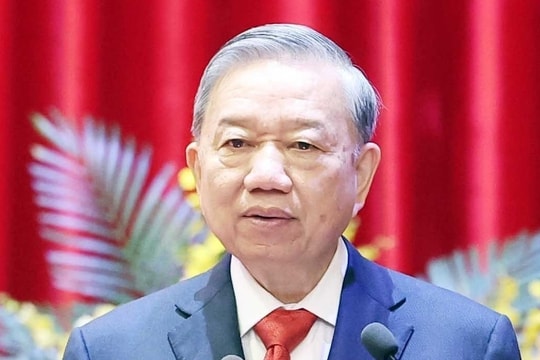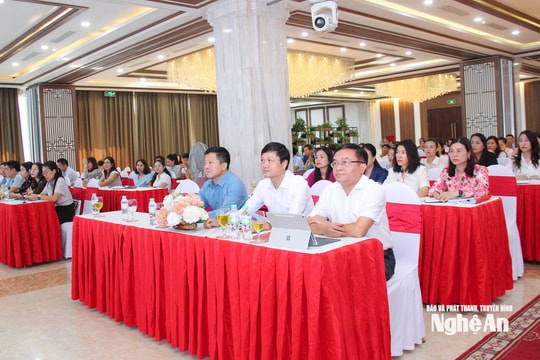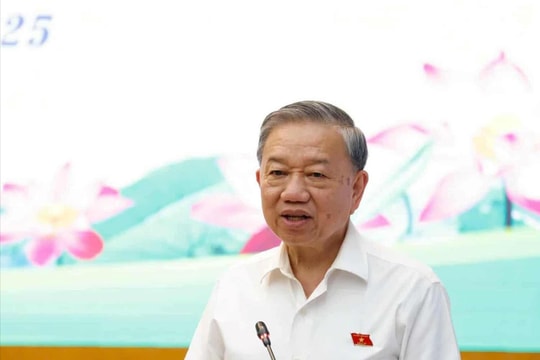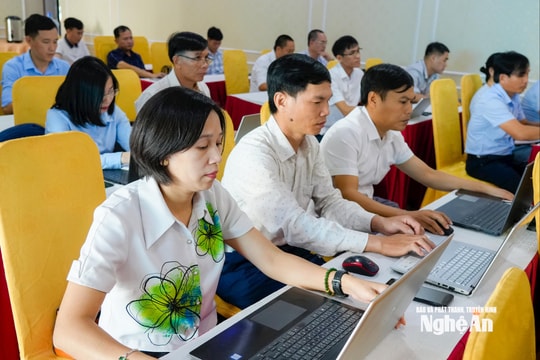'Officials who no longer have the people's trust should resign'
Officials and civil servants must gain the trust of the people and consider public trust as a measure of morality. When they no longer have the trust of the people, they should resign.
In a letter to the People's Committees of the regions, provinces, districts and villages published in the newspaper Cuu Quoc on October 17, 1945, President Ho Chi Minh wrote: "We must understand that the Government agencies from the whole country to the villages are all servants of the people, that is, to shoulder the common work of the people, not to oppress the people as in the period under the domination of France and Japan. Whatever is beneficial to the people, we must do our best to do it, whatever is harmful to the people, we must avoid at all costs."
For the first time, Uncle Ho used the term "public servant" to refer to state officials and civil servants with a completely new idea, and this idea still holds true today.
In the current period, when we are making efforts to study and follow Ho Chi Minh's ideology, morality and style, each party member and cadre, more than anyone else, must deeply understand the concept of public servants in order to cultivate and train themselves, and strive together to build the country.
Reporter interviewed Dr. Nguyen Si Dung, former Deputy Head of the National Assembly Office, about this content.
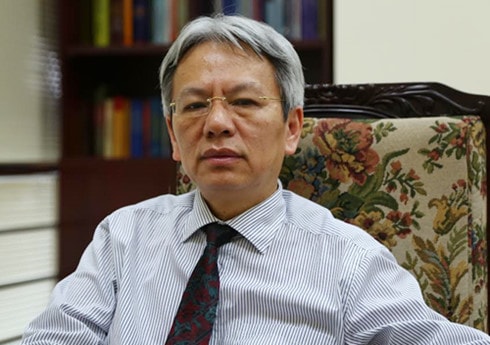 |
| Dr. Nguyen Si Dung, former Deputy Head of the National Assembly Office. |
PV:According to him,How valuable is President Ho Chi Minh's thought that cadres must be servants of the people today?
Mr. Nguyen Si Dung:That idea still holds true. We are now facing a problem with the public service spirit of our civil servants.
In feudal times, the officials served the King, but in a democracy, the power does not belong to the King but to the people. Therefore, all those officials became servants of the people.
Power belongs to the people, so it must serve the people. That is the nature of the times, the nature of the system has changed. But in reality, when power is in your hands, you feel entitled, forgetting that the subject of power is the people.
Uncle Ho's teachings are still there, but considering oneself a public servant is only a part of public ethics. Now we strive to have the first part, which is to consider the public interest as the highest. "Public" here means the entire people, forming the public and the public interest must be number one. That is the first meaning associated with the idea of public servant that Uncle Ho put forward.
What does it mean to put the public interest first? For example, in bidding and bid evaluation activities, if the wife and children of officials also participate in the bidding, there are two ways: one is that the wife and children of the official are not allowed to participate, two is that the official must withdraw from the bidding and bid selection process.
Third, officials, civil servants, and public employees must gain the trust of the people, considering public trust as a measure of morality. When they no longer have the trust of the people, they should resign. That is the foundation of morality to be able to operate the public service.
Besides the reality of cadre work, with the spirit of wholeheartedly serving the people, there are also many cadres who are willing to sacrifice their personal material and spiritual interests, willing to accept all difficulties and hardships, even sacrificing themselves for the common good.
PV:Sir, besides the examples of public servants who are devoted to the people, unfortunately there is still a large number of cadres and party members who are afraid of hardships and difficulties, and even fall into corruption, waste and extravagance. In the past time, our Party has taken very strong measures to rectify and handle cadres who are not truly devoted to the people.According to him,solutions that have been and are being implementeddeclareto improve the quality of cadres has really eliminatedthe negatives?
Mr. Nguyen Si Dung:Those solutions are necessary, bring certain efficiency, but I think that currently there are some problems if we care then the solution design will be better.
For example, if we talk about cadres in general, it is very difficult, because cadres is a very general concept, at the highest level there are politicians, people who have the power to issue decisions, policies, laws, guidelines. The standards set for those people must be different.
As for those below, at the administrative level, policies must be correct to be implemented; if the policy is wrong, the implementers have no way to make it right.
The better the execution, the higher the efficiency. Therefore, it is difficult to say such general things about cadres. We need to impose different rules on politicians and civil service staff. Obviously, the trust system is the most important.
The trust of the National Assembly and People's Councils must be real and practical, but more importantly, the trust of the people. Those who do not have the trust of the people cannot be politicians.
Subordinates and civil servants must be professionally competent and must pass examinations to select truly talented people. Because the policy has been issued, they must have enough capacity and professional skills to implement it well, not just saying the Resolution is enough.
So with that system, we will select the right people and eliminate the wrong ones.
At the same time, we must build a legal system that imposes responsibility on reality. For example, at the political level, people's trust is low, if there is no trust, officials should resign. At the lower levels, there must be strict discipline, officials who are assigned tasks but do not complete them must be dismissed, there must be "iron" discipline, that is, imposition of the law.
The incentive system must be designed to change, including spiritual incentives. Besides, there must also be material incentives, get rid of those who "go to work with an umbrella in the morning and come back with an umbrella in the afternoon", and use that money to pay salaries to dedicated public servants.
PV: What do you think about the self-cultivation and training of cadres and party members in their efforts to follow Uncle Ho to truly become public servants?
Mr. Nguyen Si Dung: This is very important, it is one aspect of striving. Because, the outward appearance can be judged this way or that. But the outward assessment does not reflect the inner reality, the inner reality is what each person knows most about themselves. If we do not correct ourselves, we are only dealing with the outside. If we want to be better, we must cultivate ourselves regularly.
Self-training and self-cultivation are important, half of the problem is related to ethics, half of the problem is related to professional qualifications. For example, when a citizen's petition is sent, the cadres do not know how to handle it, what the legal regulations are. Obviously, cadres need to train themselves in both professional knowledge and ethics.
PV:Thank you, sir./.


.jpg)
-20beb6e86b328c2f15359acbcda618bc.jpg)
